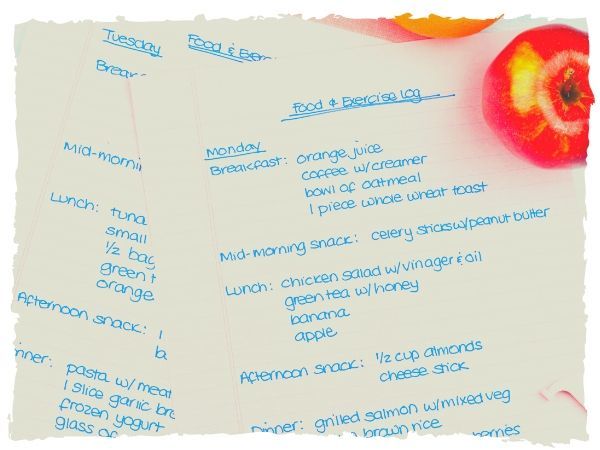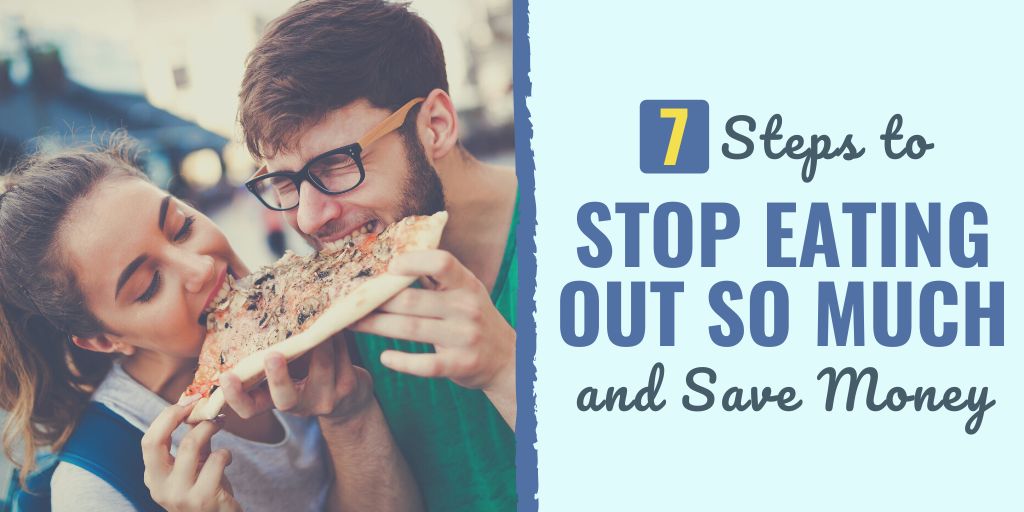You have undoubtedly heard people say that time is money, which may lead you to believe that convenience is key.
But what if convenience itself ends up costing you a lot of your earnings in the long run? Is it financially worth the price of your time?
Eating out is convenient and can save you time, but according to research published in Forbes, it is almost five times as expensive to order food from a restaurant than it is to cook at home.
And, with 49% of millenials spending more money on dining out than they put into their retirement accounts every year, this is a lot of money that is being wasted on (often unhealthy) food that could be better used elsewhere.
According to the Bureau of Labor Statistics, in 2015, the average amount of money that people spent on dining out increased $221 from the year before.
However, the average amount spent on groceries only increased by $44 during the same period of time. This shows that eating out isn’t considered to be a luxury anymore; it’s the norm. And the result of this is a huge impact on our finances.
Why You Should Stop Eating Out So Much
If you’re looking to increase the amount of money that you’re able to save each month, eating out is a relatively simple thing to cut out that will result in a high payoff.
Once I stopped grabbing food to-go and created a keystone habit of meal planning for each week, I ended up taking a bit of time out of my Sunday afternoons, but the payoff was huge–both financially and with time I was spending during the week waiting for food at restaurants during lunch and dinner rushes.
If you want to start to see the amount of money in your savings account increase or you’re trying to get out of debt in the foreseeable future, limiting the number of times you eat out per week is one of the most effective financial habits you can adopt.
In this article, I am going to give you a step-by-step process for how you can decrease your habit of going out to eat. Remember, this does not have to be an “all or nothing” thing.
You can still eat out every once in a while. But, the more you cut back, the more money you will save. I have a feeling that once you decrease your habit of eating out, you will be compelled to eat home cooked food more and more often than ever before.

While you may be wondering why you need a “how to” guide on simply stopping a behavior (rather than learning a new one), the truth is that you have to take a proactive approach to stopping a habit that is probably so ingrained in your routine that you’re not used to the alternative.
If you want your new habit to stick, you have to be constructive and specific about your plans to make it work. Following these 7 steps will give you a much higher chance of being successful.
Step One: Make a Commitment
If you’re not committed to stopping your habit of eating out in the first place, it isn’t going to stick.
Maybe you need to crunch some numbers and add up how much money you have spent in the last month on eating out or even look up some of the nutritional information for some of the typical things you order at restaurants.
There has to be some type of motivation behind your commitment in order for it to stick, whether that is financial, health-related, or both.
Action Plan: Fuel your motivation to limit eating out by writing down how much money you have spent each month for the last three months on eating out.
To stay committed moving forward, write down the total amount of money you spend on eating out at the end of each subsequent month to watch your progress.
Step Two: Define Your Parameters and Start Small
How much are you going to limit yourself?
Are you going to allow yourself to have one meal out per week or are you trying to cut it out altogether?
No matter what your ultimate goal is regarding your frequency of eating out, you can start gradually by just cutting out lunches out at first or avoiding your pit stop to grab a specialty coffee on your way to work from here on out.
A big part of setting your parameters goes back to looking at your motivation to stop eating out so much. If it is for financial reasons, what would be a more reasonable amount of money to spend on eating out each month and how many meals does that realistically allow you to treat yourself to?
Be specific in making your parameters. For example, don’t tell yourself that you will only eat out for special occasions, because soon enough you might find yourself grabbing a burger because it is National (fill in the blank) Day.
You may even want to set parameters for the amount of money you’re willing to spend when you do go out. If you’re giving yourself one lunch a week, don’t let that lunch exceed $12 total.
Action Plan: Write down the specific rules that you’re setting for yourself regarding eating out. If you’re easing into the new habit, write down a firm plan of how and when your rules will become more strict.
Step Three: Make Your Meal Plan–and Don’t Forget About Snacks
Once you have defined your parameters, create a meal plan. Otherwise, you’re going to find yourself staring blankly into the fridge in the middle of the week wondering what you should have–which might tempt you to just grab something for takeout.
In order to make meal planning approachable and something that you will continue to do after just a few weeks, it will be beneficial to use meal planning tools and scheduling meals that aren’t complicated to put together after you’ve had a long day at work.

Keep in mind that you won’t want to make an exact copy of someone else’s meal plan that you come across online.
Everyone has their own food preferences, level of cooking skills, and budget for food, so you want to make sure to plan for things that you will enjoy to eat (to resist the urge of calling for emergency takeout), and things that you can realistically prepare given your other obligations.
Also, if you’re like me, when 3:00 hits, you’re thinking about some type of pick-me-up to help you power through the rest of the day. But don’t leave the vending machine as an option to cover you until you get home for dinner.
Bring your snacks to work and have them available in your refrigerator for the rest of your family. Make sure to have an emergency stash with you in places that it’s appropriate in case you start feeling hungry.
Action Plan: Find the tool that works best for you to help you plan your meals. For some, meal planning apps work; while others find weekly meal planning templates more effective.
Then set aside a time each week to dedicate to planning for each day of the upcoming week. Make your snacks in batches and break them down to individual portions.
That said…
Step Four: Get Creative
While it may be best to keep your meal planning pretty simple during the week, don’t be afraid to get creative on the weekends.
If there is a relatively intricate dish that you’ve been wanting to try, set aside some time on Saturday or Sunday to give it a shot. The weekends are a great time to mix it up and keep your diet a bit creative because you’re not in a rush to get through dinner and turn in early.
Also, having creative meals on the weekends will help you keep things interesting at home, because at some point, your family is going to get sick of chili in the crock pot and want something more…exquisite?
Use the weekends to experiment in the kitchen so you don’t get tired of eating the same old thing every week.
Action Plan: Look up recipes online that use ingredients that you know your family likes or find a mock recipe for one of your favorite dishes that you get when you eat out at a restaurant.
Include your family in the cooking process for these more intricate meals so everyone can feel involved in the process and creation of the dish.
Step Five: Prep as Much as You Can
One of the reasons that you’re so used to eating out is probably because you don’t want to cook after being at work all day. However, preparing your ingredients ahead of time will make it a lot easier to whip up dinner when you get home.
For example, having a slow cooker might be one of your best cooking investments. You can just put the ingredients in it in the morning and your dinner will be hot and ready when you get home.
Or, if you’re going to grill one night, go ahead and put your meat in a marinade in the refrigerator before heading off to work.
You can even prep in larger quantities by cutting up all of the vegetables you will need for the entire week on Sunday night or cooking all of the chicken you will be using in various dishes. Doing this will help keep you motivated and reduce the temptation to run through the drive-thru on the way home.
Action Plan: Figure out everything that you can prep ahead of time after you plan out your meals for the week. Help yourself out by having dinner as pre-made as possible once you get home so you can just throw it together.
Step Six: Don’t Forget to Treat Yourself
If one of the reasons that you want to stop eating out so much is because you’re trying to control what you eat in order to lose weight, you still need to keep moderation in mind and treat yourself every once in a while. There are many non-food rewards you can still enjoy.
The video below shows the best healthy morning routine habits that you should focus on the first few hours of the day in order to lose weight.
While you can really limit yourself during the week, feel free to indulge for a meal on the weekends. Doing this will help give you something to look forward to during the week, which can help reduce your everyday cravings for these foods.
What you consider a “treat” is completely personal to you. This may mean going out for ice cream or getting some wings at the bar while you’re watching a football game one night. Whatever you can look forward to during your moments of weakness during the week will fit the bill.
Action Step: Don’t have an “all or nothing” mindset. Prevent yourself from feeling restricted by allowing some wiggle room in moderation.
Step Seven: Save Your Leftovers
Your leftovers are the easiest lunch or dinner for the following night available. You’ve already done all of the work, you just need to pack it up and grab your leftovers on the way out of the door the next morning.
If you don’t do this, make sure to freeze the rest of your homemade creation. Having some kind of pre-made dinner waiting for you at home that requires nothing but the microwave to prepare may be one of the most critical elements to your success of eating at home more.
Everyone has long and stressful days where you get home late, feeling both hungry and tired. It is on these days that you will want to reach for your frozen leftovers that you’ve stored in individual portions in the freezer and pop them in the microwave.
If you’re planning to eat your leftovers for lunch the next day, make sure to pack it up the night before.
If you end up being in a rush the next morning (which you will) you may be tempted to cross the task of making your lunch off of your list of things to do because you know you can just grab something while you’re out.
Each night, just assume your morning is going to be rushed and go ahead and get your lunch packed.
But no matter what, make sure to make use of everything that you make at home and don’t simply throw away whatever you haven’t eaten.
Action Step: Buy containers that can fit individual sized portions of your meals to either take to work the next day for lunch, eat for dinner on another night that week, or freeze for emergencies.
Final Thoughts on How to Stop Eating Out
No matter what your reasons are for frequenting your local restaurants, you can change that habit and eat healthier while also saving a significant amount of money.
In fact, if you’re anything like the average American, choosing to eat at home instead of grabbing food at restaurants will save you about $3,000 per year. We’re all busy, and yes, grabbing food at a restaurant is convenient, but the amount of money you spend on eating out adds up fast.
It may very well be a difficult transition to go from eating at restaurants to eating at home most of the time because it can take more of your time and energy.
You don’t have to be the world’s best chef or make every ingredient from scratch. With meal planning and food prepping, you can get yourself on track to reducing your meal expenditures while also improving the health of your diet.
If you want to stop eating out as a way to help you lose weight, check out our review of the best intermittent fasting apps that helps you track your eating and fasting cycles and monitor your weight loss goals.
Now, if you're looking for more resources to help you stop eating out too much, be sure to check out these posts:
- 33 Printable Weekly Meal Planner Templates
- How to Stop Eating Fast Food: Take the 30-Day Challenge
- 15 SMART Goals for Nutrition (Examples for Your Healthy Eating Plan)
Finally, if you want to focus on a great HEALTH habit that increases your energy and helps with your weight goals, then take 30-seconds each morning to prepare this drink to feel energized throughout the day.

Connie Stemmle is a professional editor, freelance writer and ghostwriter. She holds a BS in Marketing and a Master’s Degree in Social Work. When she is not writing, Connie is either spending time with her 4-year-old daughter, running, or making efforts in her community to promote social justice.


